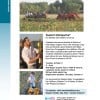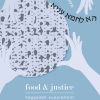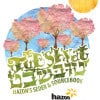The Hazon offices will be closed through October 21st for the holiday of Sukkot. Staff will return to the office on Monday, October 24th. We’d like to wish everyone a chag sameach and happy holiday. Please check out our Healthy, Sustainable Sukkot Resources. What’s Sukkot? MyJewishLearning.com has a Sukkot 101 that covers the basics. If you live in New York City, Westchester, or Long Island, we invite you to learn about Care to Share, our first annual citywide and volunteer fresh produce drive running through October 18th (The Jew and the Carrot has a few words about Care to Share, too). Check out Repair the World’s Sukkot round-up of blog post about “homelessness, poverty and hunger, as well as sustainable agriculture and the environment.” Read Pursue’s round up of resources to “help raise your awareness of the justice issues associated with Sukkot.” The Jew and the Carrot discusses “a few reasons why it is especially important to eat locally and sustainably during Sukkot” and has a complete menu for a meatless Sukkot feast. How are you making your Sukkot more healthy and sustainable? Share your tips in the comments below! Photo by Flavio@Flickr, licensed under Creative Commons.












